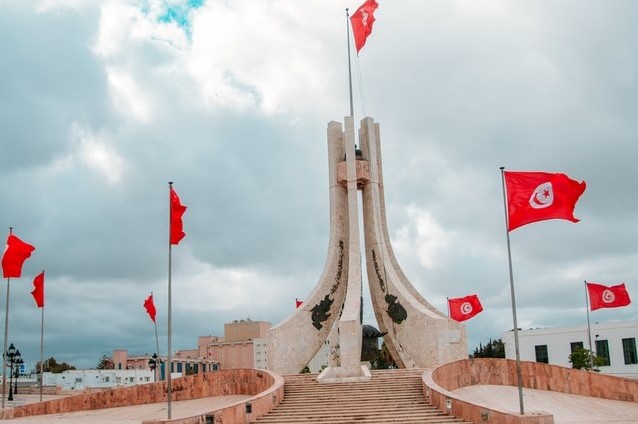Vestigo Volatility Score: 65%
President Kais Saied staged a power grab in Tunisia in late July when he fired the country’s Prime Minister and suspended Tunisia’s parliament. The move came amid nationwide protests caused by a backlash against the government’s handling of the pandemic, as well as plummeting economic conditions. Historical precedent in the region suggests a move this volatile comes with immense political risks. On the other side of the coin, Tunisia has been a bastion of political calm in North Africa and the Middle East, at least in comparison to many of its neighbors.
Importantly, the majority of the population supports Saied, giving the president greater political capital to embark on his uncertain agenda. Local pollster Emrhod suggested on July 25 that 87 percent of the population was in favor of Saied’s recent actions. He will unlikely want to upset his mandate too much by swiftly rolling back democratic norms.
Who will an anti-corruption crackdown impact?
Among a litany of pledges, Saied has made a vow to crack down on corruption. It remains to be seen in what capacity such a clampdown will take. Businesses likely await with bated breath to see if they will fall under Saied’s anti-corruption sledgehammer. Local businesses operating under a previous bureaucracy likely have more to fear than any foreign company. While the brash nature of recent events spurs unease, Saied will need to placate international business and foreign direct investment (FDI) in the country. This will be essential to help spur economic growth in a country with endemic socio-economic issues. That will not be achieved by cracking down unilaterally on the business community. In that vein, opposition politicians will likely be the principal receivers of Saied’s suppression.
Tunisia’s political and socio-economic reality in a COVID world
The decline in livelihoods is not a novel phenomenon only experienced during the pandemic. COVID may have catalyzed the process of decline in Tunisia, but living standards have been falling since the country’s revolution in 2011. Prior to the pandemic, unemployment was already at 15 percent. By the end of Q1 2021, the rate had increased to 17.8 percent. The country has experienced very low GDP growth since 2011, and a sharper economic decline than most of its regional neighbors. Saied will need to overcome years of socio-economic hardship to continue to placate an angry populace. Recent historical precedent indicates this will be no small feat, even without the lurking shadow of a debilitating virus to contend with.
Tunisia’s taste of democracy has struggled to make its mark not least because of the need to form fractured coalitions to govern. With little bargaining power, widescale reform has been difficult to enact. Most recently, politicians have found it punishing to ensure a loan agreement with the IMF that would secure a USD 4 billion loan over three years. While Saied has temporarily removed the hurdles of legislative bickering, the IMF requires stability and the guarantee of repayment. Saied will need to play his cards right in the coming months to secure any concrete deal with the IMF. Only time will tell.
The next months will likely be less politically volatile
Due to the suddenness of Saied’s actions, and the demands by the populace for drastic change, Tunisia’s political future is unclear. Even so, to the contrary of most news stories on the subject matter, Tunisia’s recent democratic history, as well as the need for Saied to ensure economic stability through factors such as FDI and an IMF deal, indicates a somewhat less volatile political outcome in the coming months than many commentators fear. Saied will seek to placate the 87 percent that support his actions. That will require stability to ensure Tunisia achieves economic change.

